A perennial silvery bush with a recognisable fragrance, lavender (Lavandula angustifolia, syn. L. Officinalis) has been omnipresent throughout human history. Cleopatra used its fragrance for seduction, Tutankhamun’s grave was decorated with fragrant lavender flowers and Charles IV had a habit of putting a lavender flower in his pillowcase for some good night’s sleep. And it wasn’t just royalty that enjoyed the benefits of this plant. The lavender herb was also used to treat the upset stomachs of Roman soldiers and even the wounds of soldiers in WW2.
And due to its many amazing properties, lavender has managed to travel all the way from Ancient Egypt, Greece and Rome to our modern 21st-century homes, most commonly in the form of essential oil. Its benefits are supported both by traditional medicine and multiple scientific studies, which makes this oil deserving of the epithet “medicinal cabinet in a bottle”.
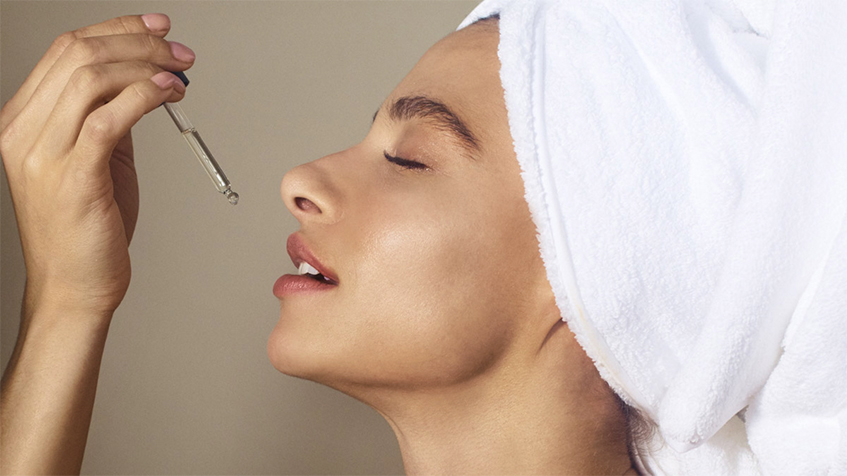
In fact, the list of benefits lavender essential oil has is getting longer and longer. Whether you’re trying to improve your mood, looking for effective oily skin essential oils for your beauty routine, or are in need of a quick fix for a post-workout strain, this multipurpose essential oil has got you covered.
What Are the Main Health Benefits of Lavender Essential Oils?
Great for Treating Oily Skin and Acne
Most of the time, some of the best products for treating oily skin and acne are in fact the simplest of all. While harsh acne creams and treatments may deliver temporary results, in the long term, they can dry the skin out, causing it to produce even more sebum, leading to even more acne. If you’re tired of all the ineffective and oversaturated market for oily skin products, why not try a simple remedy such as lavender essential oil and try to unclog your pores the natural way?
Numerous studies on the pain-relieving (antinociceptive), immunomodulatory and anti-inflammatory properties of compounds found in lavender essential oil exist, and although the evidence is still not bulletproof, more supporting data is piling up. These properties make lavender oil great for calming acne breakouts and preventing bacteria from building up on the surface of the skin.
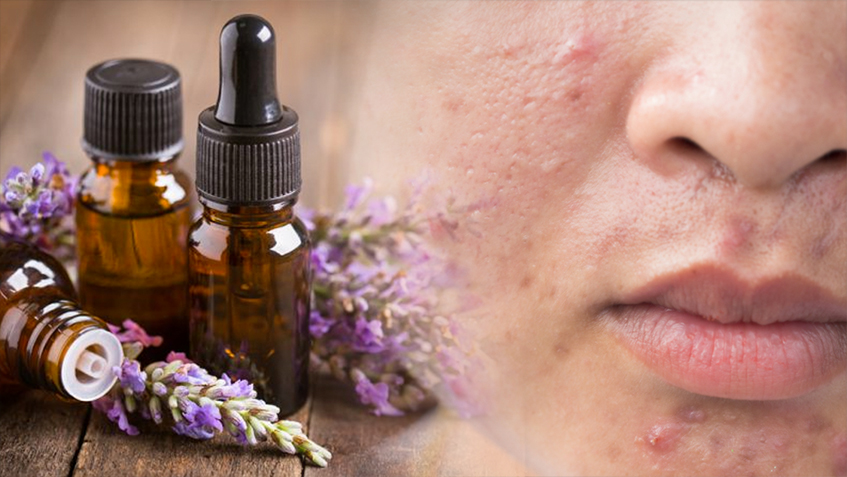
But that’s not all lavender oil can do for your skin! It’s also found to be effective in decreasing sebum production, redness and spotting due to containing active ingredients such as linool (a non-toxic terpene alcohol that has natural germicidal properties), cis-ocimene, lavandulyl acetate, 1,8-cineole, limonene, geraniol and beta-caryophyllene.
These effects are thought to be further improved by the presence of the protein kinase C (a multi-purpose group of enzymes that play a role in inflammation). The protein kinase C influences multiple cellular functions, like cell death and inflammatory responses, especially the activation of white blood cells (lymphocytes). As a result, the presence of this protein in lavender oil can help clean out the skin, allowing dead skin cells to be removed easier and boosting the production of new skin cells.
It’s really worth trying this natural remedy as there is nothing you can lose because oily skin essential oils have no known side effects when properly applied. In the worst-case scenario, you won’t notice any difference. But in the best case, you’ll finally change the glow you despise with the glow you deserve!
Simple but Optimal Hair Care
As if the lovely fresh scent wasn’t enough of a reason to apply lavender oil to your hair, the multiple anti-inflammatory properties we already mentioned really give meaning to the quote “kill two birds with one stone.” Multiple studies were conducted to prove the oil’s antimicrobial and antidandruff properties and its benefits for overall scalp health. Its anti-inflammatory properties are so strong that they might even be useful in fighting autoimmune diseases of the scalp such as alopecia areata.
Furthermore, using lavender oil can help speed up hair growth. A study on female rats was performed to explore the effects of lavender oil on hair growth. It included the application of lavender essential oil on their backs and observation of the changes in hair follicle number, dermal thickness, and hair follicle depth. The results confirmed that lavender oil has a marked hair growth-promoting effect.
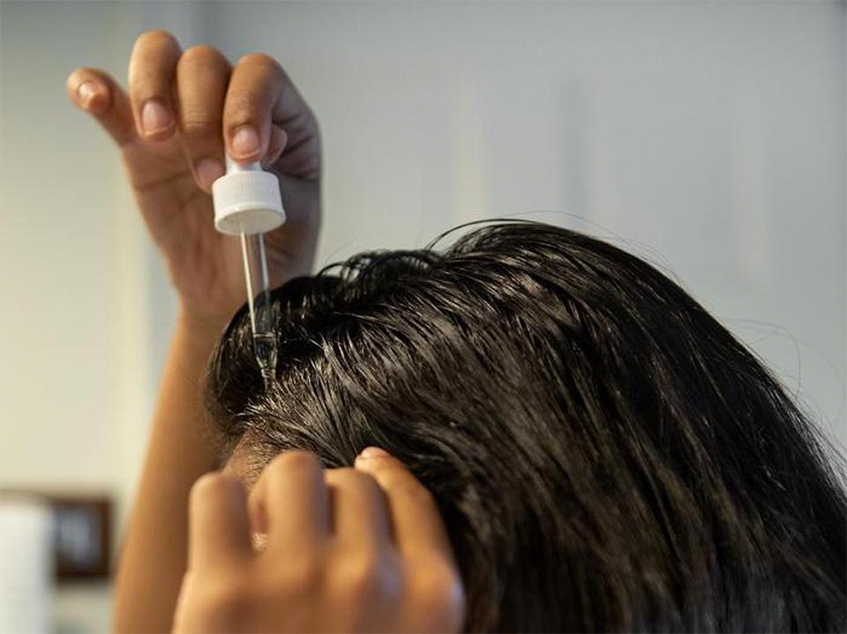
Another study determined to assess the ability to induce death of head lice and their eggs (ovicidal efficacy) claims that lavender essential oil has 44.4 % ovicidal efficacy, much higher compared to other essential oil treatments for head lice. However, more studies are needed to support this effect.
It’s important always to remember to mix the lavender essential oil with a carrier oil, like olive oil or melted coconut oil, because applying pure lavender oil directly to your scalp might cause damage. You don’t have to change your hair-care routine, you can simply add it to your hair-care products.
Smell Your Troubles Away
Lavender is considered one of the best essential oils for relaxation and stress relief and aromatherapy in general. Although aromatherapy has been used in ancient civilizations like Greece, Rome, China and India, the actual term was first coined by René-Maurice Gattefossé, a 1930s French chemist, after he burned his hand in his laboratory and applied lavender oil to treat the burn. This speed of the healing process was so impressive that he decided to publish a book (Gattefosse’s Aromatherapy) where the word aromatherapy was first used.
But in addition to being great for treating wounds, the most desirable and proven quality of lavender oil is stress reduction. When inhaled, this oil can exert beneficial psychological effects due to inputs coming from the olfactory bulb (a neural structure responsible for our sense of smell) directed to the amygdala and hippocampus, brain regions that are part of the limbic system and are are associated with emotion and memory.
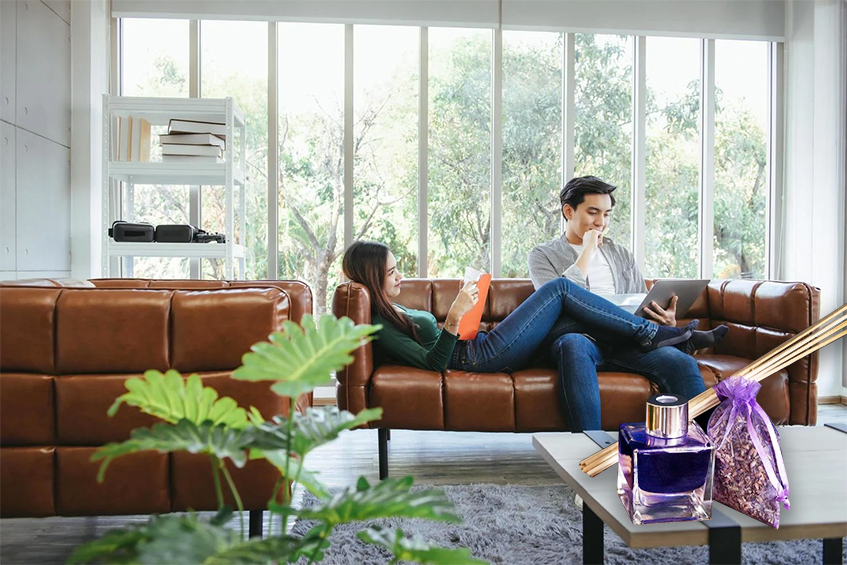
Moreover, positive effects have been recorded in treating headaches and migraines, relieving menstrual cramps and pain (dysmenorrhea), menopausal symptoms, improving digestion, and boosting immunity.
Two studies performed on Iranian and Turkish female students i.e. women of reproductive age with painful periods showed complementary results. Groups receiving only massages, massages combined with lavender oil aromatherapy and placebo groups were formed and the pain of the participants was measured before and after.
When the aromatherapy massage and the placebo massage groups were compared, the participants in the lavender group had a pain assessment score that was significantly lower. Compared to common drugs used for painful periods like non-steroid anti-inflammatory drugs (NSAIDs), lavender oil is much safer.
Your Temporary Dentist
Believe it or not, there is a way to ease a toothache, one of the most stubborn pains, without the use of painkillers. If for some reason you can’t use painkillers, there’s no need to endure the excruciating ache before your dentist appointment. The lavender essential oil has been proven to reduce the perception of pain and provide temporary pain relief.
Toothaches are caused by nerve irritation due to tissue damage of the root, tooth, or gums. It has been well documented that inflammatory mediators (neuropeptides, kinins, protons, prostanoids, serotonin) are released during the inflammation produced by tissue damage. In summary, inflammation and pain go hand in hand and these mediators provoke a painful inflammatory response. So, what has lavander oil got to do with this? Remember the Protein kinase C?
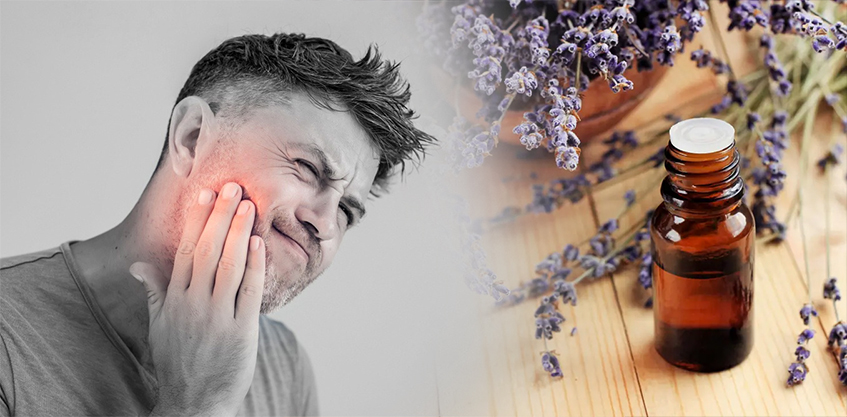
In a study done on rats, it was found that lavender essential oil has effects on reduction on pain perception similar to drugs like tramadol (an opioid). As a result, lavender oil has been found to be as potent and effective compared to standard pain relievers such as NSAIDs, but without the negative opioid effects.
While the dentist can’t be avoided forever, at least the hope for fewer visits exists. And lavender can help postpone the need for dentist appointments thanks to its effectiveness in preventing and reducing teeth plaque, fighting cavities, and increasing your overall oral health.
The diluted oil can be applied directly to the painful tooth or gums, inhaled, or you might want to try topical skin application on the jawline where it hurts the most.
Grease Up Your Joints
From post-workout strains to chronic inflammatory diseases of the musculoskeletal system, this oil can help you get back on your feet and get you going.
In fact, results from one study dedicated to finding solutions for osteoarthritis, the most common chronic joint disease affecting middle aged and elderly people showed that lavender aromatherapy massage reduces pain in patients with osteoarthritis of the knee, a commonly affected joint.
Considering the worldwide impact of osteoarthritis, undoubtedly you can turn into a superhero overnight by spreading the word. Share this easy method for relieving joint pain with your loved ones at the next family gathering and put a smile on your grandma’s face.
A Word of Caution
Although the benefits clearly outweigh the harms, essential oils, like any other pharmacologically active substance, should be treated with caution and respect. Always dilute your essential oil (in water or other types of organic natural oils) at a concentration of no more than 3-5%. If you haven’t used lavender oil before, make sure you do a skin patch test to look for possible allergic reactions and prevent more serious complications.
It is important to avoid essential oils while you are pregnant, keep them safely locked away from your kids, and make sure you don’t forget to mention your use of essential oils to your doctor.
Are you ready to take a whiff of health?


